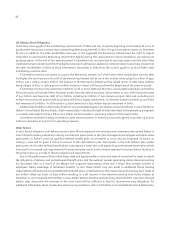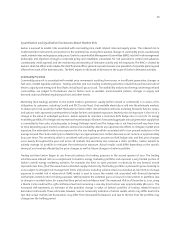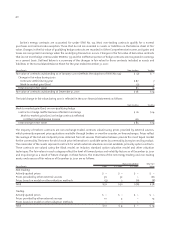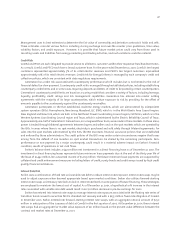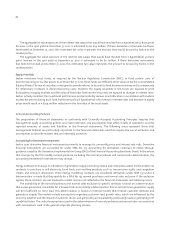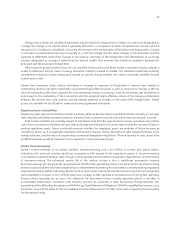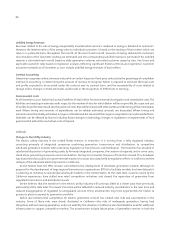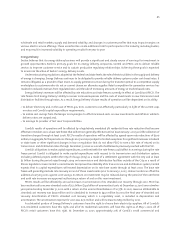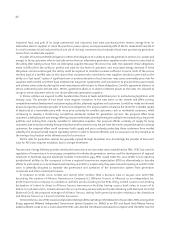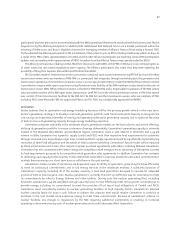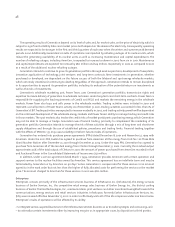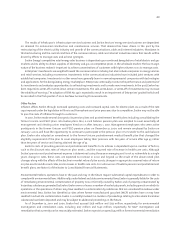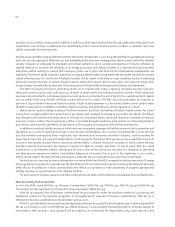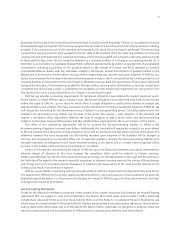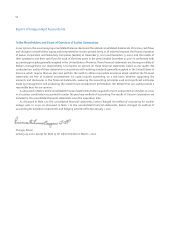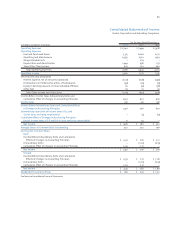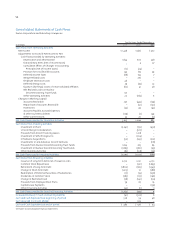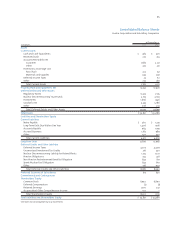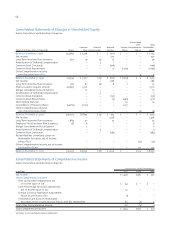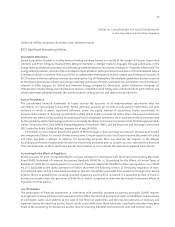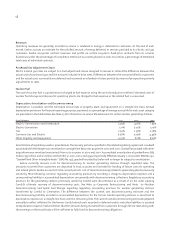ComEd 2001 Annual Report Download - page 50
Download and view the complete annual report
Please find page 50 of the 2001 ComEd annual report below. You can navigate through the pages in the report by either clicking on the pages listed below, or by using the keyword search tool below to find specific information within the annual report.
48
The operating results of Generation depend on its level of sales and, for market sales, on the price of electricity, which is
subject to significant volatility. Sales and market prices both depend on the demand for electricity. Consequently, operating
results are expected to be stronger in the first and third quarters of each year when the winter and summer peak demand
periods occur. Additionally, Generation’s results of operations are impacted by refueling outages of its nuclear units, which
reduce the generating availability of its nuclear units, as well as increasing maintenance and capital expenditures. The
number of refueling outages, including AmerGen, is expected to increase to eleven in 2002 from six in 2001. Maintenance
and capital expenditures are expected to increase by $80 million and $24 million, respectively in 2002 as compared to 2001
as a result of the additional nuclear refueling outages.
Generation intends to continue to grow its generation portfolio through asset acquisitions, development of new plants,
innovative application of technology, joint ventures and long-term contracts. New investments in generation, whether
purchased or developed, are dependent on the future success of both the bilateral and spot energy wholesale markets,
which are newly created and continuing to develop. Regardless of the approach, Generation intends to remain disciplined
in its opportunities to expand its generation portfolio, including its evaluation of the potential return on investments as
well as the risks of investments.
Generation’s wholesale marketing unit, Power Team, uses Generation’s generation portfolio, transmission rights and
expertise to ensure delivery of generation to wholesale customers under long-term and short-term contracts. Power Team is
responsible for supplying the load requirements of ComEd and PECO and markets the remaining energy in the wholesale
markets. Power Team also buys and sells power in the wholesale markets. Trading activities were initiated in 2001 and
represent a small portion of Power Team’s activity. As of December 31, 2001, trading activities accounted for less than 1% of
Generation’s EBIT. Trading activities are expected to increase modestly in 2002, and trading activity growth will be dependent
on the continued development of the wholesale energy markets and Power Team’s ability to manage trading and credit risks
in those markets. The spot markets also involve the credit risks of market participants purchasing energy, which Generation
may not be able to manage or hedge. Generation uses financial trading, primarily to complement the marketing of its
generation portfolio. Generation intends to manage the risk of these activities through a mix of long-term and short-term
supply obligations and through the use of established policies, procedures and trading limits. Financial trading, together
with the effects of SFAS No. 133, may cause volatility in Exelon’s future results of operations.
Generation has entered into purchase power agreements (PPAs) dated December 18, 2001 and November 22, 1999 with
AmerGen. Under the 2001 PPA, Exelon has agreed to purchase from AmerGen all the energy from Unit No. 1 at Three Mile
Island Nuclear Station after December 31, 2001 through December 31, 2014. Under the 1999 PPA, Generation has agreed to
purchase from AmerGen all of the residual energy from Clinton through December 31, 2002. Currently, the residual output
approximates 25% of the total output of Clinton. In 2001, the amount of power purchased from AmerGen recorded in Fuel
and Purchased Power in the Consolidated Statements of Income was $57 million.
In addition, under a service agreement dated March 1, 1999, Generation provides AmerGen with certain operation and
support services to the nuclear facilities owned by AmerGen. This service agreement has an indefinite term and may be
terminated by Generation or by AmerGen on 90 days’ notice. Generation is compensated for these services in an amount
agreed to in the work order but not less than the higher of fully allocated costs for performing the services or the market
price. The amount charged to AmerGen for these services in 2001 was $80 million.
Enterprises
Enterprises consists primarily of the infrastructure services business of InfraSource, Inc. (InfraSource), the energy services
business of Exelon Services, Inc., the competitive retail energy sales business of Exelon Energy, Inc., the district cooling
business of Exelon Thermal Technologies, Inc., communications joint ventures and other investments weighted towards the
communications, energy services and retail services industries. InfraSource, formerly Exelon Infrastructure Services, Inc.
(EIS), was renamed effective November 15, 2001 in order to effectively unite all of the EIS companies under one brand name.
Enterprises’ results of operations will be affected by its ability:
– to integrate various acquired businesses in the infrastructure services business so as to realize synergies and cost savings, and
– to rationalize certain investments either by improving margins or, in appropriate cases, by disposition to third parties.


